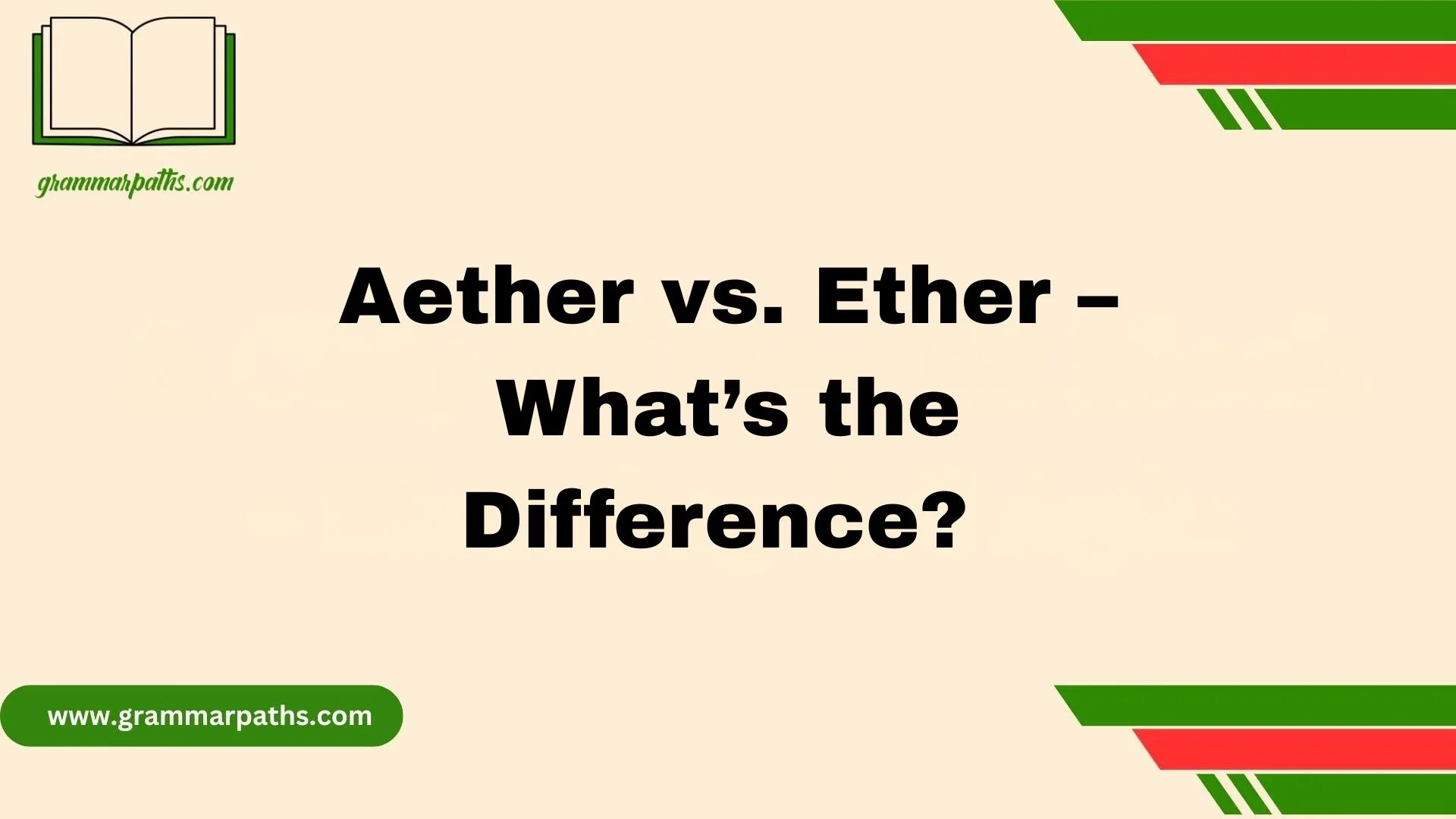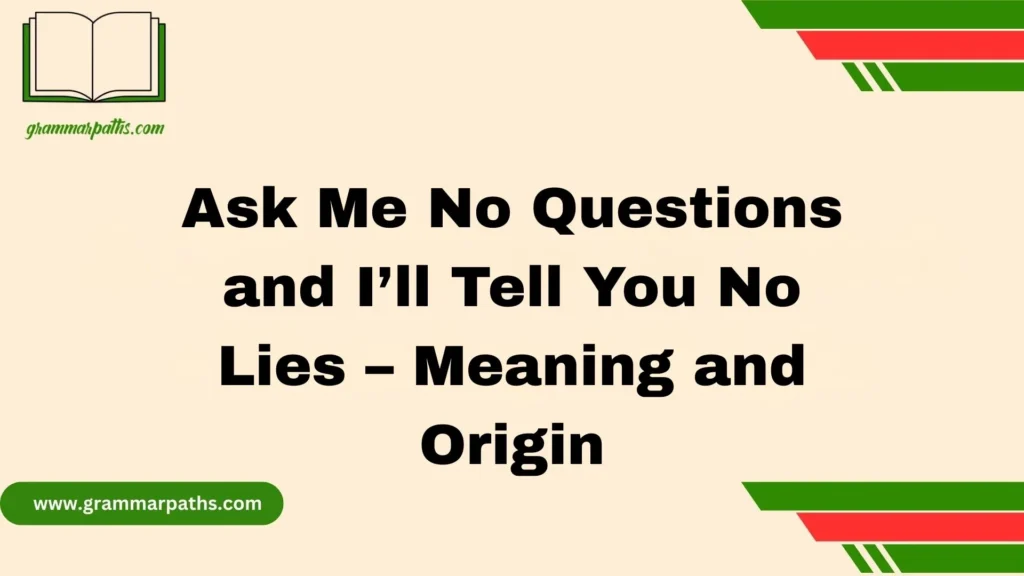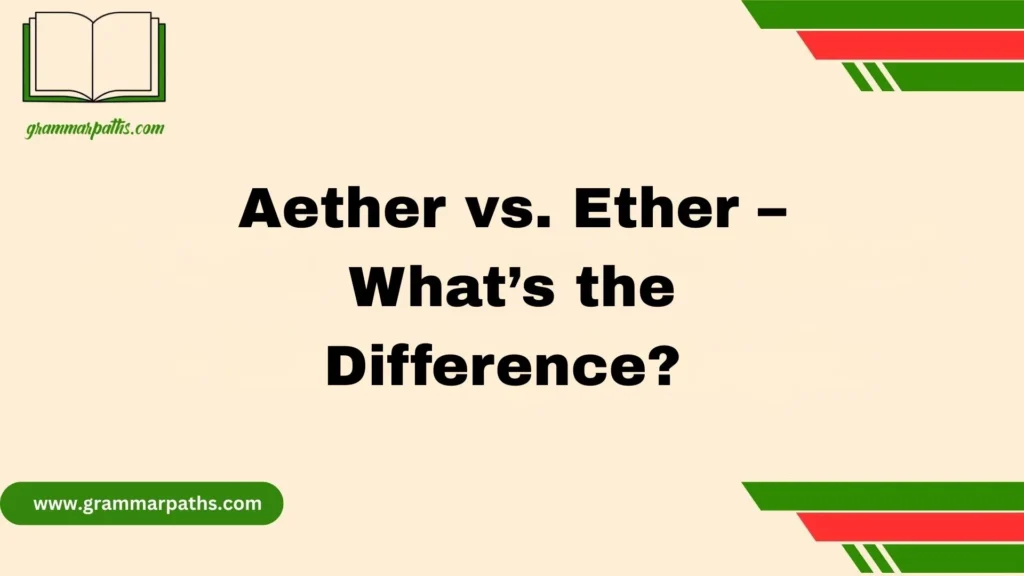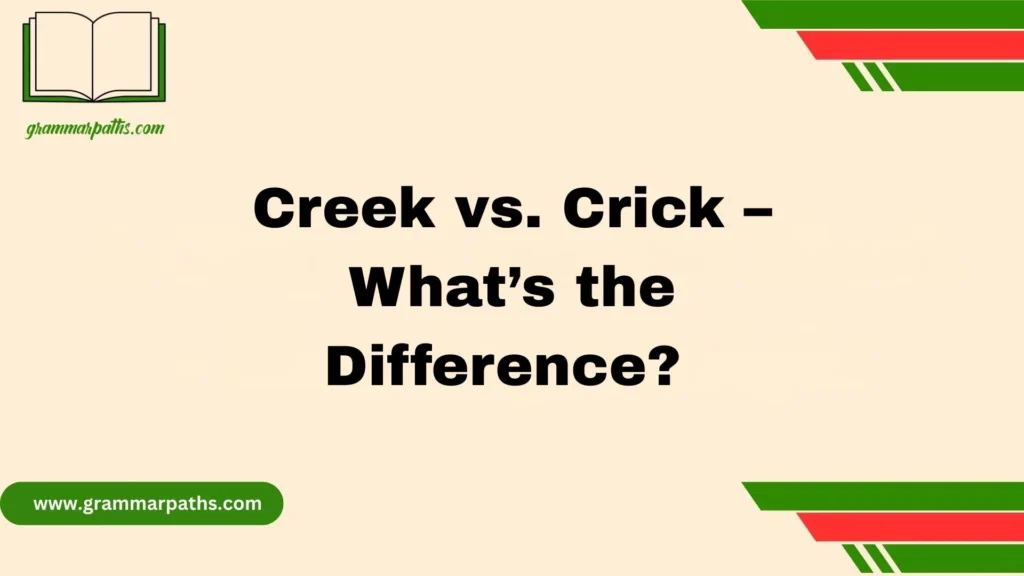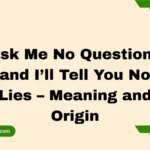The terms aether and ether may look almost identical, but they carry very different meanings depending on the context—from mythology and philosophy to science and language usage. Many people confuse the two, especially since both words trace back to ancient Greek origins and have been used in literature, chemistry, and even spiritual studies. Understanding their differences is essential if you want to use the right word in academic writing, everyday speech, or professional discussions.
In classical mythology, aether referred to the pure essence of the upper air, the heavenly realm where the gods lived. Meanwhile, in modern science, ether became a term for substances like diethyl ether, once used as an anesthetic and also theorized as a medium for light waves in old physics models. This dual history has led to overlapping interpretations, making the two words easy to mix up.
This guide will break down the origins, meanings, and uses of both terms. By the end, you’ll clearly see when to use aether and when to use ether, helping you avoid common mistakes and strengthening your language precision.
Understanding Aether: Origins and Historical Context
The word aether (Greek: aithēr) literally means “pure, fresh air” or “upper sky.” For the ancient Greeks, it wasn’t just the physical sky, but the divine element that filled the heavens. Aether was thought to be purer than the air we breathe, closer to the gods, and beyond the reach of ordinary humans.
Mythological significance
- In Greek mythology, Aether was a primordial deity, representing the personification of the upper air. He was considered the “pure essence” breathed only by the gods, in contrast to the murky air mortals inhaled.
- Aether was closely tied to Hemera (Day) and Nyx (Night), showing its role in cosmology as part of the cycle of existence.
Philosophical roots
- Aristotle later formalized the concept by naming aether the fifth element (quintessence).
- Unlike earth, air, fire, and water, which were corruptible and changeable, aether was incorruptible—eternal and divine.
- For Aristotle, aether filled the celestial spheres, explaining the movement of stars and planets.
This notion of aether spread into medieval philosophy and Islamic scholarship, where it blended with theological concepts. For centuries, it was accepted as the medium holding the universe together.
The Evolution of Aether in Thought
The idea of aether didn’t stop with Aristotle. It evolved through different eras of human knowledge.
Medieval cosmology
During the Middle Ages, scholars like Thomas Aquinas integrated aether into Christian theology, viewing it as part of the divine structure of the cosmos. Aether helped bridge faith and natural philosophy, explaining why the heavens seemed perfect and unchanging compared to Earth.
Renaissance and Enlightenment
As Europe entered the Renaissance, new instruments like the telescope revealed more about the heavens. Still, many natural philosophers clung to the concept of aether as the invisible substance allowing celestial bodies to move.
19th-century physics and the luminiferous aether
By the 19th century, aether had taken on a new role in physics. Scientists believed light, like sound, needed a medium to travel through. This “luminiferous aether” was thought to fill empty space, enabling electromagnetic waves to move.
- James Clerk Maxwell’s equations of electromagnetism (1860s) supported the idea of waves, which seemed to require a medium.
- Experiments like the famous Michelson–Morley experiment (1887) tried to detect Earth’s movement through this aether. The result? No evidence of aether at all.
The downfall of aether
The death blow came with Albert Einstein’s theory of relativity (1905). He showed that light doesn’t need a medium—it can travel through the vacuum of space. This shifted science away from aether, though some later physicists, including Einstein himself, used the word metaphorically when describing space-time.
Defining Ether: Modern Usage and Scientific Nuances
Now let’s shift to ether—a word that looks similar but points in a very different direction.
Linguistic difference
By the 17th century, English began dropping the “a” in “aether.” The simplified spelling ether stuck, especially in scientific and medical texts.
Ether in chemistry
In modern chemistry, ethers are a class of organic compounds where an oxygen atom is bonded to two carbon groups (R–O–R).
- Example: Diethyl ether (C₄H₁₀O), one of the most famous ethers.
- Properties: colorless, highly flammable, with a distinctive sweet smell.
- Uses: solvent in labs, once widely used in medicine.
Ether in medicine
- In 1846, diethyl ether was introduced as the first surgical anesthetic.
- It allowed doctors to perform operations without patients feeling pain—revolutionizing surgery.
- Though it’s less common now (replaced by safer anesthetics), its role in medical history remains monumental.
Ether in everyday language
Even outside the lab, the term ether spread into literature and technology:
- In the 19th century, “ether” described the invisible medium for telegraphy and radio waves.
- Writers used it metaphorically to describe dreams, creativity, or the unseen world.
- Today, you’ll still see “ether” in phrases like “vanished into the ether,” meaning disappeared completely.
Aether vs. Ether: Key Differences Explained
Here’s where the two terms clearly diverge:
| Aspect | Aether | Ether |
| Origin | Ancient Greek aithēr (upper sky) | Modern spelling of aether, used scientifically |
| Historical role | Fifth element in philosophy, medium for light in classical science | Organic compounds in chemistry, medical anesthetic |
| Scientific status | Disproven as physical substance after Einstein’s relativity | Valid class of chemical compounds, practical uses |
| Symbolic meaning | Purity, divine essence, higher realms | Invisible medium, metaphor for disappearance or communication |
| Modern usage | Found in literature, fantasy, philosophy | Found in science, medicine, and daily language |
In short:
- Aether belongs to history, philosophy, and myth.
- Ether belongs to modern chemistry, medicine, and metaphor.
Cultural and Literary Uses of Both Terms
Both words continue to live on outside science.
Aether in literature and fantasy
- Fantasy writers often use aether to describe mystical energy or magical forces.
- In role-playing games and novels, “aether” powers spells or connects realms.
- Example: In many video games, “aether” represents spirit energy or life force.
Ether in literature and metaphors
- Poets in the 19th century described ether as the place of dreams or imagination.
- The phrase “into the ether” became shorthand for something disappearing without a trace.
- In modern fiction, ether sometimes blends science and magic, symbolizing communication across dimensions.
This cultural reuse shows how both terms—though scientifically separated—remain powerful symbols in human imagination.
Conclusion
The distinction between aether and ether lies in their history, meaning, and usage. While aether often refers to the mythological upper air, the spiritual realm, or classical philosophy, ether has become more common in modern science, chemistry, and even everyday English. Knowing how to use these terms correctly not only prevents confusion but also adds clarity and precision to your writing.
FAQs
Q1: Is “aether” just an old spelling of “ether”?
No. While they share a common Greek root, aether relates to mythology and metaphysics, while ether is used in science and modern English.
Q2: Is ether still used in medicine?
Yes, but less commonly today. Diethyl ether was once a popular anesthetic but has been replaced by safer alternatives.
Q3: Can “aether” be used in literature or fantasy writing?
Absolutely. Writers often use aether to describe mystical energy, cosmic essence, or celestial realms.
Q4: Which term is correct in everyday English?
In most modern contexts, especially science, ether is the correct choice.
Q5: Why do people confuse aether and ether?
Because both terms look and sound alike, share Greek origins, and were used interchangeably in older texts.

Grace Marie is the dedicated writer behind GrammarPaths.com, where she shares her passion for English grammar, idioms, and writing mastery. With a strong background in language studies and years of experience helping learners improve their communication skills, Grace creates clear, practical, and engaging content that makes English easy to understand.
